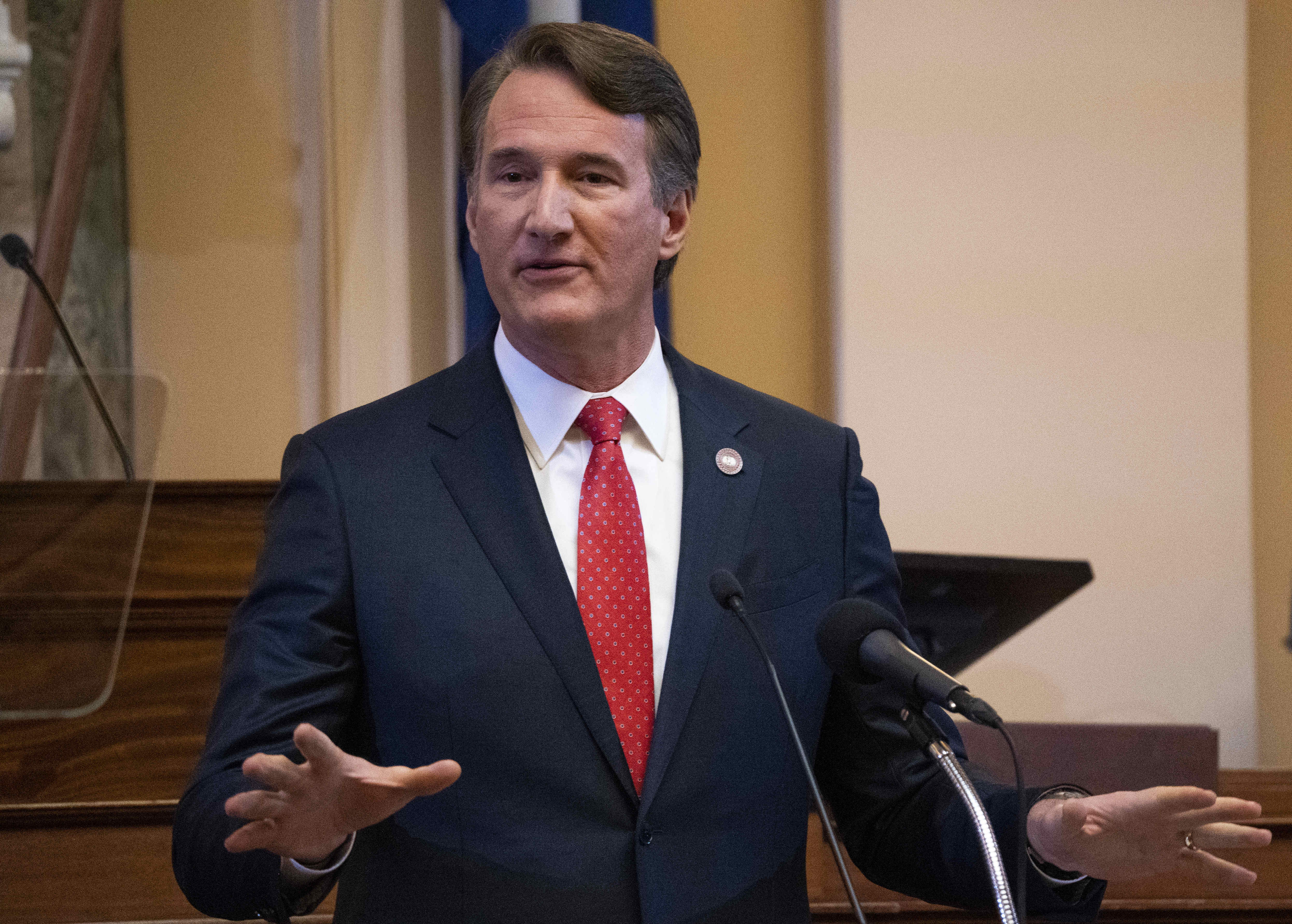4th Circuit strikes down effort to purge suspected noncitizen voters

Virginia Gov. Glenn Youngkin (R) gives his State of the Commonwealth address on Jan. 10. (Minh Connors for the Washington Post)
A federal appeals court on Sunday upheld the ruling of a Virginia judge who struck down an effort from state officials to automatically cancel voter registrations of suspected noncitizens, pointing to a federal law that prohibits states from purging voters 90 days before a presidential election.
The decision in the U.S. Court of Appeals for the 4th Circuit comes after U.S. District Judge Patricia Tolliver Giles on Friday rejected arguments from attorneys for Attorney General Jason S. Miyares (R) and Republican Gov. Glenn Youngkin, who signed an executive order Aug. 7 to expedite the removal of registered voters who checked a box on their driver’s license applications indicating that they were not U.S. citizens.
Shaun Kenney, a spokesperson for Miyares, said in an email after the appellate court decision Sunday that Virginia would file an appeal in the U.S. Supreme Court “immediately.”
While the National Voter Registration Act (NVRA) prohibits states from conducting systematic voter purges during a 90-day “quiet period” before a federal election, attorneys for Youngkin and Miyares argued that officials had a duty to remove any “noncitizens, minors and factitious people” from the rolls to preserve election integrity.
In contrast, voting rights organizations and the Justice Department’s Civil Rights Division argue this quiet period is necessary to prevent mistakes. They said that U.S. citizens with a right to vote were victims of Youngkin’s order.
Some Virginia officials have said that fully qualified voters who skipped the citizenship question on their driver’s license application were caught up in the purge, in addition to those who became citizens long after their first interaction with the Department of Motor Vehicles.
In her Friday decision, Giles said that Youngkin’s order—which he made exactly 90 days before the Nov 5. election—violates the NVRA and issued a preliminary injunction to force Youngkin’s administration to halt the program until after the election. Giles also directed the state to send a letter to 1,600 people who had been removed from the rolls under Youngkin’s order and instructed country registrars to reinstate them.
Giles further ordered state officials to “educate local officials, poll workers, and the general public” about the decision.
In a written statement after Friday’s decision, Youngkin said he would seek an emergency stay of the injunction through the court of appeals and threatened to escalate the matter to the U.S. Supreme Court if necessary.
In many ways, Sunday’s decision from 4th Circuit Judge Toby J. Heytens, a Biden appointee, was a firm rejection of arguments made by attorneys for Youngkin and Miyares in their appeal effort.
“Despite having made various justiciability and sovereign immunity arguments before the district court, appellants drop all such claims before us. Instead, appellants argue the challenged conduct does not violate the National Voter Registration Act,” Heytens’s decision says. He was joined by Chief Judge Albert Diaz and Judge Stephanie D. Thacker. “Like the district court, we are unpersuaded.”
The appellate court judges, however, did reject a facet of Giles’s order that instructed Virginia officials to educate local officials and poll workers, arguing that the order lacked clarity and risked causing even more confusion for voters in the state.
Illegal immigration has been a key focus for Youngkin as he has campaigned alongside Donald Trump in Virginia. The Virginia Coalition for Immigrant Rights was the lead plaintiff in opposing Youngkin’s order and was joined by the League of Women Voters, African Communities Together and the Justice Department.
A federal court in Alabama similarly halted efforts from state officials to remove noncitizens from the voting rolls. There, the Justice Department also argued that eligible voters were being wrongfully swept up in the effort.
Write a letter to the editor, share a story tip or update, or report an error.


